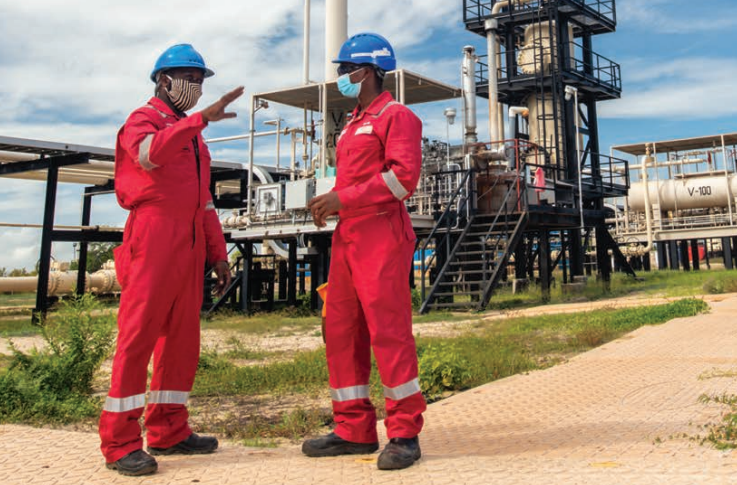
AIM-listed Wentworth Resources’ production dipped in 2020, but revenue was largely flat and the company has upped its dividend.
Wentworth’s sole asset is a non-operated stake in Tanzania’s Mnazi Bay.
Revenue reached $18.9 million, up slightly from $18.6mn. The company will pay out a total of $3.8mn in dividends for 2020, up from $3mn in 2019.
With a cash pile reaching $17.8 million in 2020, the company is considering options for growth in the country.
“We believe we should reinvest, back into the country and we’re looking at two ways to do this,” Wentworth’s CEO Katherine Roe told Energy Voice.
Spending plans
The first is through optimising its existing interest in Mnazi Bay. The gas field has performed with “minimal investment”, she said, “but this doesn’t go on forever”.
“We have a five year plan and a field development plan with some additional significant capex in 2023-24,” Roe said.
Work on the gas field will involve compression and some additional development wells, a move the CEO described as a “no brainer”, given the cost-recoverable PSA and fixed gas price. There may also be an exploration component.
The Mnazi Bay partners will hold talks with the government on plans. One potential point of negotiation will be around extending licence terms. The licence currently expires in 2031.
The second part of Wentworth’s plans are a potential deal. “There are limited options” in the onshore Tanzania space, “with a small peer group and only one other producing asset”, Roe noted.
Wentworth did spend money in 2020 on legal costs as it explored a “couple of specific growth opportunities”, chairman Robert McBean said in the statement.
Tanzania aims to reach universal energy access for its people by 2030. While domestic electrification is growing, the “power access gap” in the country is also growing. Demand is growing faster than supply.
The East African state has proved to be challenging for some investors in the past. Aminex, for instance, took some considerable time to complete a farm-out while a number of miners have struggled.
Change is coming, the company has said. “Political shifts in Tanzania signal proactive approach towards COVID-19 and foreign direct investment,” it said in a presentation. New Tanzanian President Samia Suluhu Hassan has made some early statements appearing to encourage new investment and giving more power to ministers.
Demand
Mnazi Bay’s production averaged 65.5 million cubic feet per day in 2020, down from 70.3 mmcf per day in 2019. The field can produce more than 100 mmcf per day, Wentworth has said, and during March ran at 101.85 mmcf.
Mnazi Bay is constrained by demand rather than supply. Roe was upbeat that, as the impact of COVID-19 on tourism diminishes consumption will pick up.
Wentworth has also published a sustainability report for the first time. Blue-chip institutional shareholders are paying increasing heed to ESG factors, Roe said. They are “prioritising ESG risks and investments” amid decisions on where to put money.
“Transforming people’s lives” through the supply of energy is “at the heart of what we do” at Wentworth, Roe said. “ESG pressure is coming really quickly – and it’s been exacerbated by COVID-19. Let’s get the energy sector moving towards lower carbon sources.”
Wentworth has played a key role on examining Mnazi Bay’s emissions, in a process necessarily driven by operator Maurel et Prom. “The data was there, the wherewithal was there and the motivation was there. It’s important to demonstrate to TPDC and the government that we’re taking this seriously.”
